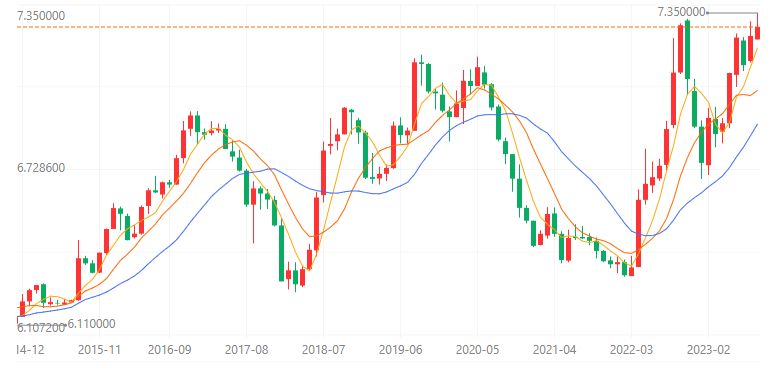The recent interest rate hikes in the U.S. dollar and the devaluation of the renminbi have caused ripples in global trade, affecting various industries. This article aims to analyze the impact of these developments on global trade in general and on China’s exports of goods in particular. In addition, we will focus on assessing the impact these changes may have on our company’s products, particularly traditional gas and electric stoves.
1. The impact of U.S. dollar interest rate hikes on global trade:
Rising U.S. interest rates make the U.S. dollar more attractive to investors, causing capital outflows from other countries. This could lead to higher borrowing costs for countries and businesses, negatively impacting global trade.
A. Exchange rate fluctuations: Raising interest rates causes the U.S. dollar to strengthen against other currencies, causing other countries’ currencies to depreciate. This may make exports from these countries relatively more expensive, potentially affecting their competitiveness in international markets.
b. Reduced investment: Rising U.S. interest rates tend to attract investors away from emerging economies, thereby reducing foreign direct investment (FDI) inflows. Reduced foreign direct investment could hinder the growth of businesses and overall trade in affected countries.
2. The impact of RMB depreciation on my country’s exports:
The depreciation of the RMB against the US dollar has both positive and negative impacts on China’s exports of goods.
A. Competitive advantage: A devalued yuan can make Chinese exports cheaper in the global market, thereby enhancing competitiveness. This could lead to increased demand for Chinese goods, benefiting export-oriented industries.
b. Rising import costs: However, the depreciation of the RMB will also increase the cost of imported raw materials and components, affecting the production costs of Chinese manufacturers. This in turn may reduce profit margins and impact overall export performance.
3. Analysis of the impact on our company’s traditional gas stoves and electric stoves:
Understanding the broader impact on global trade and exports from China, it is important to assess the impact these developments may have on our specific products, namely conventional gas and electric stoves.
A. Traditional gas stoves: The depreciation of the RMB may lead to an increase in the cost of imported raw materials, which may affect the company’s production costs. Therefore, the selling price of traditional gas stoves may increase, which may affect market demand.
b. Electric furnace: With the competitive advantage brought by the depreciation of the RMB, our company’s electric furnace may become cheaper in foreign markets. This may drive increased demand for our products, ultimately benefiting our business.
in conclusion:
The recent interest rate hikes in the U.S. dollar and the depreciation of the renminbi will undoubtedly have an impact on global trade and China’s exports. Exchange rate fluctuations and their impact on investment levels have significantly reshaped the international business landscape. While the overall impact on our company’s products may vary, the potential impact on conventional gas and electric ranges must be carefully considered. Adapting to these changes and taking advantage of the opportunities they present is critical to navigating this dynamic global trading environment.
If you have any inquiry for gas stove, please contact us:
Contact: Mr. Ivan Li
Mobile: +86 13929118948 (WeChat, WhatsApp)
Email: job3@ridacooker.com
Post time: Sep-12-2023

